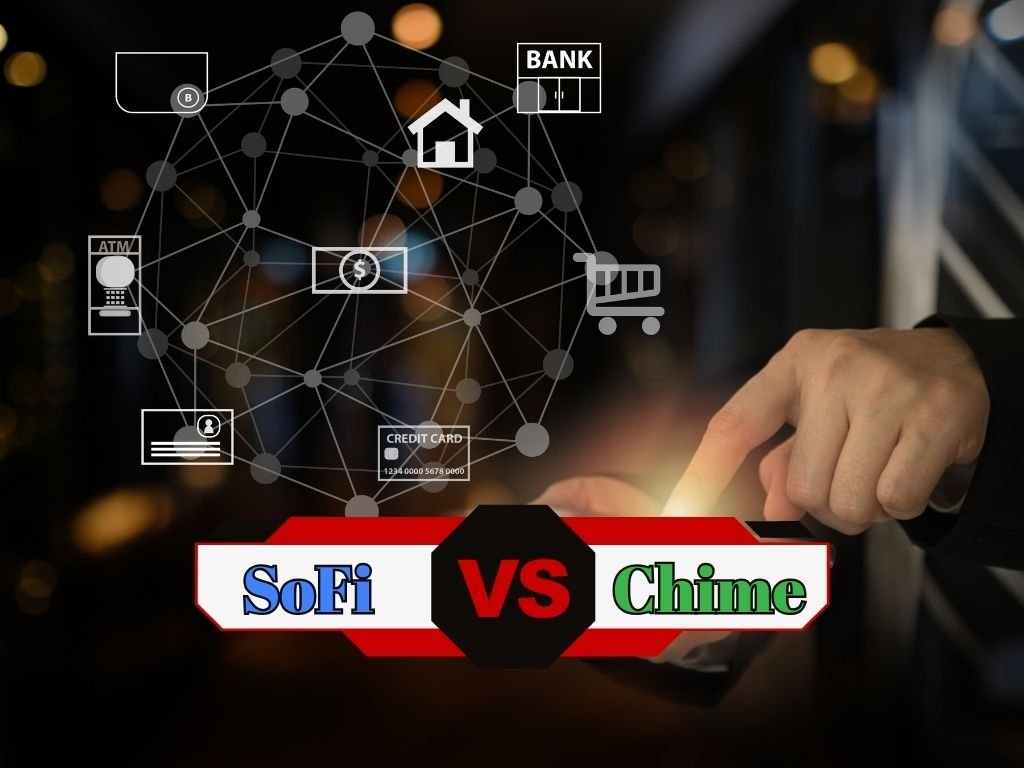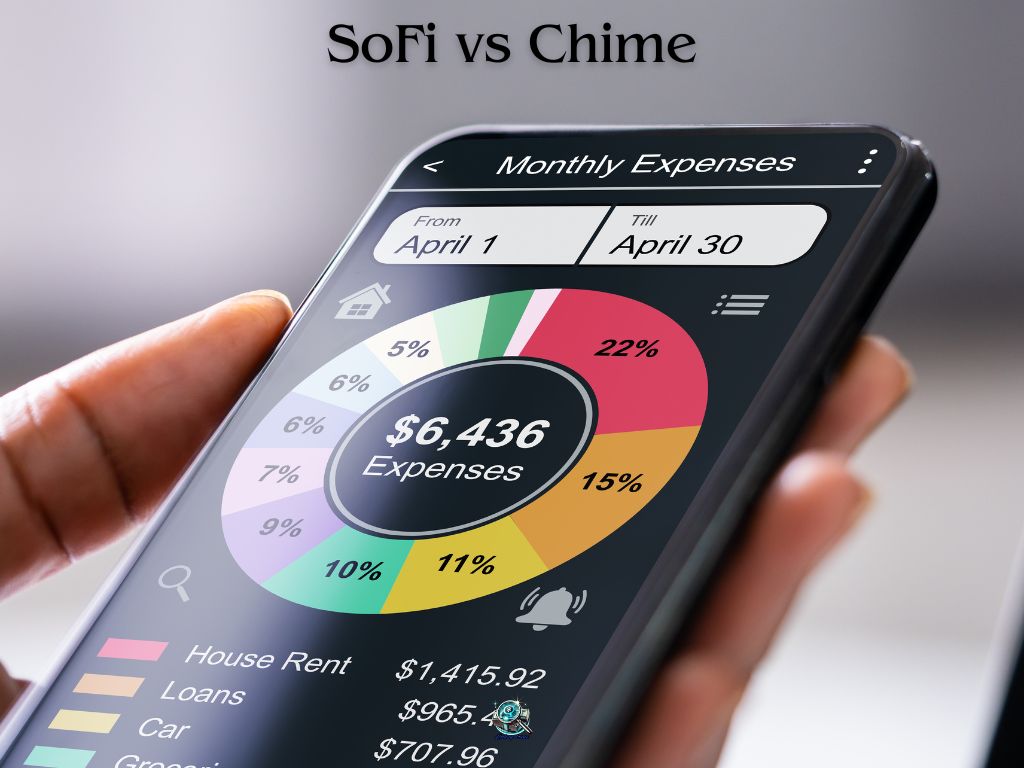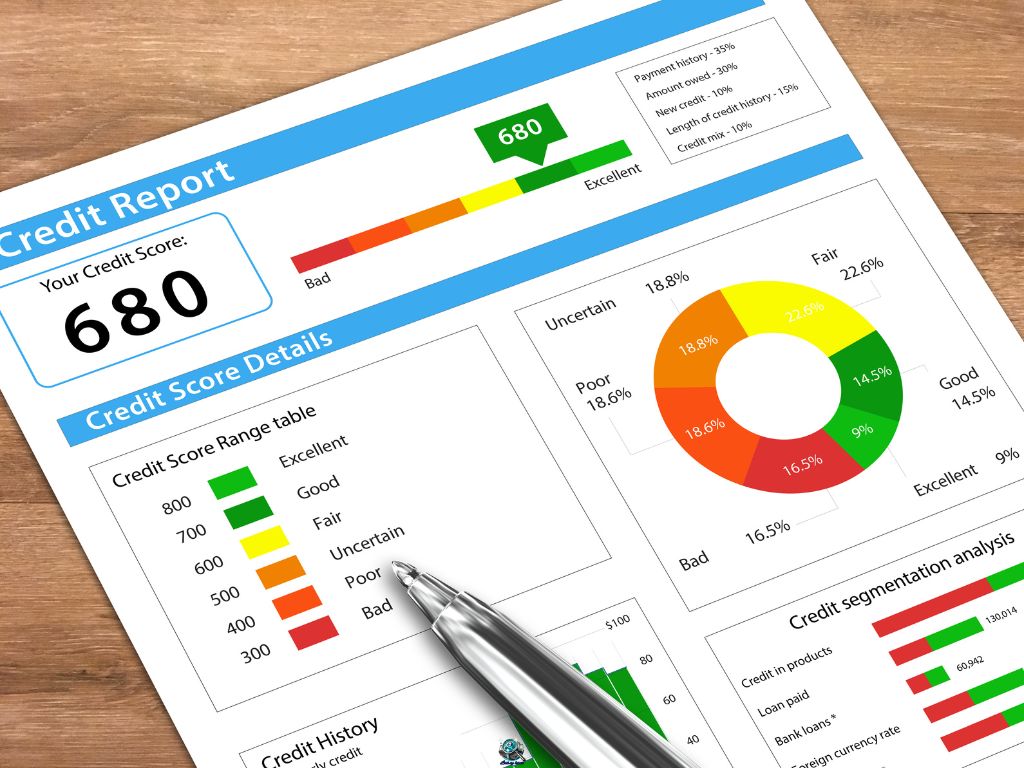Introduction
The way we bank has changed. Digital-first platforms like SoFi and Chime are redefining how people save, spend, borrow, and manage money all from a smartphone.
But with both platforms offering modern features and strong benefits, the real question is: Which one is right for you?
In this guide, we’ll compare SoFi vs Chime side by side focusing on features, fees, usability, financial tools, and trust so you can make a smart, informed decision based on what matters most to you.
Key Takeaways
- SoFi offers an all-in-one financial hub: banking, loans, investments, and credit.
- Chime focuses on simple, no-fee banking with tools to help build credit and avoid overdrafts.
- SoFi is best for users looking for full financial management in one app.
- Chime is ideal for everyday banking, fee avoidance, and credit-building support.
- Your choice depends on whether you want depth (SoFi) or simplicity (Chime).
Disclaimer: This site contains affiliate links. If you make a purchase, we may earn a commission at no extra cost to you.

SoFi vs Chime: Overview
What Are SoFi and Chime?
SoFi (short for Social Finance) launched in 2011 with a mission to help people tackle student debt. Since then, it has evolved into a full-service financial platform offering everything from checking accounts to stock trading all with a tech-forward, member-first approach. Today, SoFi operates under a national bank charter, making it one of the more regulated fintechs in the space.
Chime, founded in 2013, takes a different route. It’s not a bank, but it partners with FDIC-insured banks to deliver essential banking services with no monthly fees, no overdraft penalties, and a strong focus on accessibility. Chime’s core mission is simple: make banking faster, easier, and more inclusive especially for those underserved by traditional banks.

SoFi vs Chime: Which one is right for you?
Here’s a breakdown to help you decide.
Choose SoFi if you want:
- A full-service financial platform (checking, savings, investing, loans, credit cards)
- Higher interest rates on savings and checking
- Access to personal loans or student loan refinancing
- Automated investing and stock trading in the same app
Choose Chime if you want:
- A simple, fee-free checking and savings experience
- Early direct deposit and automatic savings
- Tools to avoid overdraft fees and build credit
- A clean, beginner-friendly app with no extra complexity
In short, SoFi is more robust, ideal for managing everything in one place. Chime is more streamlined, great for daily banking without surprises.

SoFi vs Chime: Core Banking Services
When it comes to everyday banking, both SoFi and Chime offer solid options but they serve different priorities.
Checking Accounts
- SoFi Checking comes with no monthly fees, no account minimums, and up to 2-day early direct deposit. It also offers overdraft coverage up to $50 and earns interest a feature rarely seen in checking accounts.
- Chime Checking (technically called a Spending Account) also offers early direct deposit, no monthly fees, no minimum balance, and access to SpotMe, which covers overdrafts up to $200 with no fees based on eligibility.
Savings Accounts
- SoFi Savings gives users a high-yield interest rate (often above the national average) and includes features like automated savings “vaults” to help organize your goals.
- Chime Savings also offers a competitive APY, plus automatic savings tools like round-ups and the ability to save a portion of every paycheck.
ATM Access
- SoFi provides access to 55,000+ fee-free ATMs via the Allpoint network.
- Chime offers 60,000+ fee-free ATMs through MoneyPass and Visa Plus Alliance.
📊 Summary: Core Banking Differences
✅ SoFi is a better fit if earning interest is a priority, and you want advanced tools like savings vaults.
✅ Chime stands out if you want straightforward savings and more flexible overdraft support.
For more on Sofi check out our Chime vs Cash App Comparison Here.

SoFi vs Chime: Lending, Investing & Credit-Building Tools
This is where the gap between SoFi and Chime really starts to widen. SoFi offers a wide range of financial products beyond basic banking, while Chime keeps things focused on spending, saving, and improving your credit profile.
SoFi: A Full Financial Suite
SoFi gives users access to a broad lineup of services typically offered by traditional banks and then some. These include:
- Personal loans and student loan refinancing
- Credit cards with cashback rewards and credit score monitoring
- Home loans and mortgage refinancing
- Automated and active investing, including stocks, ETFs, and crypto
- Retirement accounts (IRAs)
- Free access to financial planning and career coaching for members
If you’re looking for a single app that lets you borrow, invest, and plan your financial future, SoFi puts nearly everything under one roof.
Chime: Credit Building Made Simple
Chime doesn’t offer loans or investment products but it does offer unique tools to help users improve financial health:
- The Chime Credit Builder Visa® is a secured credit card with no annual fee, no interest, and no credit check to apply. It reports to all three major credit bureaus, helping users establish or rebuild credit over time.
- Real-time transaction alerts and free credit score access
- Automatic saving tools that promote better money habits
It focuses on helping users build a solid financial foundation particularly those who are early in their credit journey or recovering from past issues.
Bottom Line:
- SoFi is ideal for users who want to manage debt, grow investments, and access credit all in one app.
- Chime is built for users who want a simpler approach, focused on budgeting, saving, and improving credit without taking on debt.

SoFi vs Chime: Additional Financial Tools
Beyond banking basics, both SoFi and Chime offer extras designed to enhance the overall user experience but they focus on very different things.
SoFi: Rewards, Tools, and Member Perks
SoFi offers several built-in tools and member benefits that go beyond standard financial services:
- SoFi Relay: A free financial tracking dashboard that lets you monitor your credit score, spending, and net worth all in one place.
- SoFi Member Rewards: Earn points for using products like SoFi Invest or completing financial education modules. Points can be redeemed for cash or applied toward loan payments.
- Career coaching and financial planning: Members get access to 1-on-1 sessions with financial planners and career experts.
- Crypto investing and educational content: Tools for learning and trading crypto inside the app.
It is clearly aiming to be more than a bank, it wants to be your full financial partner.
Chime: Focused Utility
Chime doesn’t offer rewards programs or expansive financial dashboards, but it does excel in keeping things efficient:
- Real-time alerts help users stay on top of balances and transactions
- Automatic round-up savings make saving nearly effortless
- Streamlined notifications and reminders keep users informed without overwhelm
While it doesn’t offer a suite of perks, Chime’s clean design and straightforward tools help users stay in control without distractions.
Summary:
- SoFi offers more in the way of perks, education, and financial tracking.
- Chime keeps things minimal ideal for users who prefer simplicity over features they may not use.

SoFi vs Chime: Mobile App Design and Usability
Both SoFi and Chime are mobile-first platforms, meaning the entire user experience is designed to work seamlessly from your phone, no bank branches required. But how they approach that experience differs in both style and structure.
SoFi App: Feature-Rich and Versatile
The SoFi app is built to support a wide range of financial activities. From one dashboard, users can:
- Move money between checking and savings
- Apply for loans or refinance debt
- Invest in stocks, crypto, and ETFs
- Track their credit score and net worth
- Access exclusive member benefits and rewards
Despite all the functionality, SoFi does a solid job keeping the interface organized with tabs, toggles, and clear navigation. That said, it can feel a bit overwhelming for users who only need basic banking tools.
Chime App: Clean, Simple, and Focused
Chime’s app is built with clarity in mind. It’s minimal, intuitive, and designed to help you manage money quickly without digging through features you don’t need.
Inside the app, you can:
- View balances and transactions instantly
- Get alerts in real time
- Access your Chime Credit Builder account
- Monitor savings activity with just a few taps
Everything feels lightweight and fast. It’s easy to use especially for those new to online banking or looking for something friction-free.
Bottom Line:
- SoFi is ideal if you want a full dashboard experience with multiple tools in one app.
- Chime is best if you prefer clean design, quick navigation, and a less-is-more approach to managing money.

SoFi vs Chime: Security and Customer Support
Security is non-negotiable when it comes to managing your money online. Both SoFi and Chime take this seriously, but their customer support structures offer slightly different experiences.
SoFi Bank-Level Security with Full-Service Support
SoFi uses industry-standard security protocols, including:
- 256-bit encryption
- Two-factor authentication (2FA)
- Continuous fraud monitoring
- FDIC insurance up to $2 million through partner banks
In terms of support, SoFi stands out for offering:
- In-app chat
- Email support
- Phone support with real representatives
- Access to financial planners and career coaches for eligible members
This is ideal if you’re dealing with more complex financial products like loans or investing and want quick access to guidance.
Chime: Strong Security, Streamlined Support
It also checks the right boxes for security:
- 256-bit AES encryption
- 2FA and instant transaction alerts
- FDIC insurance up to $250,000 through partner banks (The Bancorp Bank or Stride Bank)
- In-app card locking if your card is lost or stolen
Customer support is available through:
- In-app chat
- Phone support (primarily for card issues)
Chime’s support experience is generally solid for routine banking needs, but if you need hands-on help for anything outside of that, response times can vary.
Bottom Line:
- Both platforms offer strong security and fraud protection.
- SoFi gives you more support channels and access to live advisors.
- Chime covers the essentials well, but support is more limited and focused on core banking tasks.

SoFi vs Chime: Fee Structures and Interest Rates
One of the biggest selling points of both SoFi and Chime is that they don’t rely on the traditional fee-heavy model used by legacy banks. But there are some key differences in how they handle costs and incentives.
SoFi: Fee-Free Banking with Interest Perks
- No monthly maintenance fees or minimum balance requirements
- No overdraft fees (up to $50 in overdraft coverage with qualifying direct deposits)
- Earn interest on both checking and savings:
- Up to 4.60% APY on savings (with direct deposit)
- Up to 0.50% APY on checking (with direct deposit)
- No fees for ATM use within Allpoint network (55,000+ locations)
SoFi rewards you for keeping money in your account and using direct deposit. It combines everyday banking with real earning potential especially compared to traditional banks or other fintechs.
Chime: Truly Fee-Free, With a Focus on Simplicity
- No monthly fees, no overdraft fees, and no minimums
- SpotMe overdraft protection (up to $200 based on eligibility)
- Earn interest on savings: Around 2.00% APY (varies, may require direct deposit)
- No fees at 60,000+ ATMs (MoneyPass and Visa Plus Alliance networks)
Chime doesn’t offer interest on checking, but it keeps your banking experience clean and cost-free — especially useful if you’re focused on avoiding fees and keeping things simple.
📊 SoFi vs Chime: Banking Summary

SoFi vs Chime: Rewards and Incentives
Neither SoFi nor Chime is built around flashy credit card-style rewards, but each platform offers its own version of incentives especially for new users and referrals.
SoFi: Bonus Offers and Member Rewards
SoFi actively promotes bonus offers across its product line, especially for new users. Some examples include:
- Direct deposit bonus: New users can earn up to $300 by setting up qualifying direct deposit (amount may vary by promo).
- Referral program: Earn cash for referring friends, often $50–$100 per referral.
- SoFi Member Rewards: Points earned for using different SoFi features like setting financial goals or using the Invest platform. Points can be redeemed for cash or used to pay down SoFi loans.
It uses its rewards system to encourage long-term engagement across its financial ecosystem not just to open an account, but to actually use the tools it offers.
Chime: Focused on Referral Simplicity
Chime doesn’t offer a full rewards program or bonus tiers, but it does have:
- Referral bonuses: Both you and your referred friend can earn a $100 bonus when they receive a qualifying direct deposit (amount may vary).
- Occasional seasonal or promotional offers (e.g., holiday giveaways)
While not as broad or integrated as SoFi’s rewards system, Chime’s referral program is easy to use and a nice perk for loyal users.
Bottom Line:
- SoFi wins on variety and value, offering multiple ways to earn especially if you use more than one of its services.
- Chime keeps it simple with straightforward referral bonuses and limited-time promos.

Sofi vs chime: Trustworthiness and Safety
When it comes to your money, trust matters. Both SoFi and Chime operate with strong security measures and offer FDIC insurance, but their structures and reputations differ slightly especially when it comes to how they’re regulated.
SoFi: A Chartered Bank with Expanded Coverage
SoFi holds a national bank charter, which means it’s regulated like a traditional bank not just a fintech company. This puts it in a unique position among digital banking platforms. Here’s what that means for users:
- Funds are FDIC-insured up to $2 million through SoFi Bank and partner banks
- SoFi uses 256-bit encryption, 2FA, and continuous fraud monitoring
- You can lock your debit card instantly, set spending limits, and get real-time alerts
- SoFi’s banking operations are audited and held to federal standards
SoFi’s structure provides a higher level of institutional trust and accountability than most fintech platforms making it a solid option for storing larger balances.
Chime: Secure, But Not a Bank
Chime is not a bank, it’s a financial technology company that partners with two FDIC-insured banks: The Bancorp Bank and Stride Bank. That means:
- Funds are FDIC-insured up to $250,000
- Security features include encryption, 2FA, and instant transaction alerts
- Debit cards can be locked or unlocked from the app
- Chime monitors for unusual activity and will alert you to anything suspicious
From a user’s perspective, Chime functions like a bank, but it’s important to understand that you’re trusting Chime as a layer between you and the bank that actually holds your money.
Bottom Line:
- SoFi offers higher FDIC coverage and operates as a fully regulated bank.
- Chime is safe for typical banking needs but comes with more third-party dependence something to consider if you plan to store large balances long-term.

SoFi vs Chime: Public Perception and Controversies
Both SoFi and Chime have strong user bases, but like any financial service, they’ve faced some criticism and controversy over the years. Here’s a realistic look at what people are saying both the good and the not-so-good.
SoFi: Expanding Fast, Mixed Reactions
SoFi has generally earned praise for its wide range of services and clean user interface. Many users appreciate being able to manage loans, investments, and banking all in one app. However, some concerns have surfaced:
- Customer service: While SoFi offers more support options than many fintechs, some users report inconsistent experiences, especially around loan servicing or account transitions.
- Aggressive marketing and cross-selling: Some users feel overwhelmed by upsells or prompts to use additional SoFi products.
- Bank charter scrutiny: When SoFi transitioned from fintech to a chartered bank, some regulators and industry watchers expressed concern about its rapid expansion. That said, it passed regulatory hurdles and is now a licensed national bank.
In short, SoFi is well-reviewed overall, but its fast growth and multi-product strategy may not appeal to users looking for a minimalist approach.
Chime: Simplicity Praised, But Service Concerns
Chime is widely loved for its simplicity and low fees. Many users highlight how it helped them avoid overdraft charges, get paid early, and build credit. That said, there are a few recurring concerns in public forums and reviews:
- Account closures: In the past, Chime has drawn criticism for sudden account closures, sometimes triggered by automated fraud detection. While Chime has improved in this area, it still comes up in discussions online.
- Limited support options: Some users report slow response times or difficulties getting help during account disputes.
- No physical presence: As a fully digital service, Chime lacks in-person support, which some users miss during urgent issues.
Overall, Chime is generally seen as safe and easy to use, but its hands-off support model may frustrate users who expect real-time help in complex situations.
Bottom Line:
- SoFi earns strong reviews for its features but occasionally faces criticism over service consistency and upselling.
- Chime is well-loved for day-to-day banking ease but has faced backlash for account-related issues and limited support access.

SoFi vs Chime: Pros & Cons
Why Choose SoFi?
Pros:
- All-in-one financial platform: banking, loans, investing, and credit
- High-yield interest on savings (and even checking with direct deposit)
- No fees or account minimums
- Access to personal loans, student loan refinancing, and mortgage products
- Bonus offers, rewards, and exclusive member benefits
- Regulated as a national bank with up to $2M FDIC insurance
Cons:
- App may feel overwhelming if you only need basic banking
- More product cross-promotion throughout the experience
- Some mixed reviews on customer service consistency
Why Choose Chime?
Pros:
- Completely fee-free banking: no monthly, overdraft, or minimum balance fees
- Early direct deposit and SpotMe overdraft protection up to $200
- Credit Builder card helps users build or rebuild credit safely
- Fast, user-friendly app ideal for everyday money management
- Strong customer satisfaction on simplicity and ease of use
Cons:
- No lending, investing, or advanced financial tools
- No physical locations or live financial advisors
- Past issues with account freezes and slower support resolution
Summary:
- SoFi is best for users who want to manage all aspects of their financial life in one platform with room to grow.
- Chime is ideal for users who want hassle-free daily banking with strong support for building credit and avoiding fees.
Bottom Line Comparison
SoFi and Chime are two of the most popular digital banking platforms in 2025 but they serve very different purposes.
📊 SoFi vs Chime: Category Comparison
Which Platform Should You Choose?
- Choose SoFi if you want to grow your money, manage loans or investments, and get more control over your long-term finances.
- Choose Chime if you want a stress-free, fee-free banking experience with helpful tools to manage spending and build credit.
Both platforms are trustworthy and secure but the right fit comes down to your priorities.
If you want depth, go with SoFi. If you want simplicity, go with Chime.
Check out our Sofi vs Ally Comparison.

Conclusion
SoFi and Chime both offer strong, modern alternatives to traditional banks but they serve very different financial needs.
- SoFi is ideal if you’re looking for an all-in-one financial platform that helps you save, invest, borrow, and grow.
- Chime is perfect if you want a no-fee, low-stress banking experience with helpful tools to build better money habits.
Choosing the right platform depends on your goals. Whether you’re focused on building long-term wealth or just want simple, reliable banking both options are safe, mobile-first, and designed with the user in mind.

Now that you understand the key differences, you’re in a better position to decide which one aligns with how you manage your money in 2025.
For more options check out our Loan Provider Look Up page.

Frequently Asked Questions (FAQs)
Which is better: Chime or SoFi?
It depends on what you’re looking for. If you want a full financial suite with investing, loans, and high-interest savings SoFi is the better pick. If you prefer simple, fee-free banking with tools to avoid overdraft and build credit Chime wins.
Can I trust SoFi with my money?
Yes. SoFi is a nationally chartered bank regulated by the U.S. government. Deposits are FDIC-insured up to $2 million through SoFi Bank and partner banks. It also uses bank-level security protocols to protect your account.
Is Chime safe for storing money?
Yes. Chime partners with FDIC-insured banks (up to $250,000 coverage) and offers 256-bit encryption, instant alerts, and card control features. While not a bank itself, it operates securely and is trusted by millions.
Does Chime help build credit?
Yes. Chime’s Credit Builder Visa® card reports to all three major credit bureaus and helps users build positive payment history with no credit check or interest.
What are the disadvantages of Chime?
Chime doesn’t offer loans, investing, or advanced financial tools. Customer service is limited compared to traditional banks, and some users have reported sudden account freezes due to automated fraud detection.
How do I get my money out of SoFi?
You can withdraw money from SoFi using ATMs (55,000+ fee-free Allpoint locations), bank transfers, mobile check deposit, or by requesting a mailed check through the app.
Is there a way to earn $300 with SoFi?
Yes. SoFi often runs promotions where new users can earn up to $300 for setting up qualifying direct deposits. Offers vary, so check their site or app for the latest details.
2 Comments
Chime vs Cash App: Best App for Your Money? - Look Up Loans · April 3, 2025 at 8:14 pm
[…] Also worth reading: SoFi vs Chime — Side-by-side breakdown. […]
Sofi vs Ally: Brutally Honest Comparison Inside - Look Up Loans · May 10, 2025 at 7:58 pm
[…] Next: Check out our SoFi vs Chime Comparison. […]